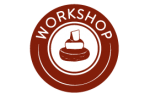August 16-18, 2016
The PA Cheese Guild will sponsor an advanced cheesemaking class at Hidden Hills Dairy in Everett, PA. Jim Wallace, consultant and technical expert at New England Cheesemaking Supply Co. will be the instructor. Jim has travelled extensively and trained with traditional artisan and farmstead master cheesemakers in Europe and spent many years studying at the Vermont Institute of Artisan Cheese. Along with the technical aspects of cheesemaking, Jim will share the stories and traditions behind the cheeses.
The three day class will include a variety of cheeses (bloomy rind, washed rind, alpine and pasta filata) and techniques for cheesemaking and affinage. Cheeses will be made from goat, sheep and cows milks. The class will include a session devoted to troubleshooting and evaluating cheeses brought by the participants. Class size is limited to 10 participants.
Cost is $950* for members and $1050* fornon-members.
*Class fees include 2 nights lodging and all meals.
Registration for Advanced Cheesemaking Class
For additional information contact [email protected]


